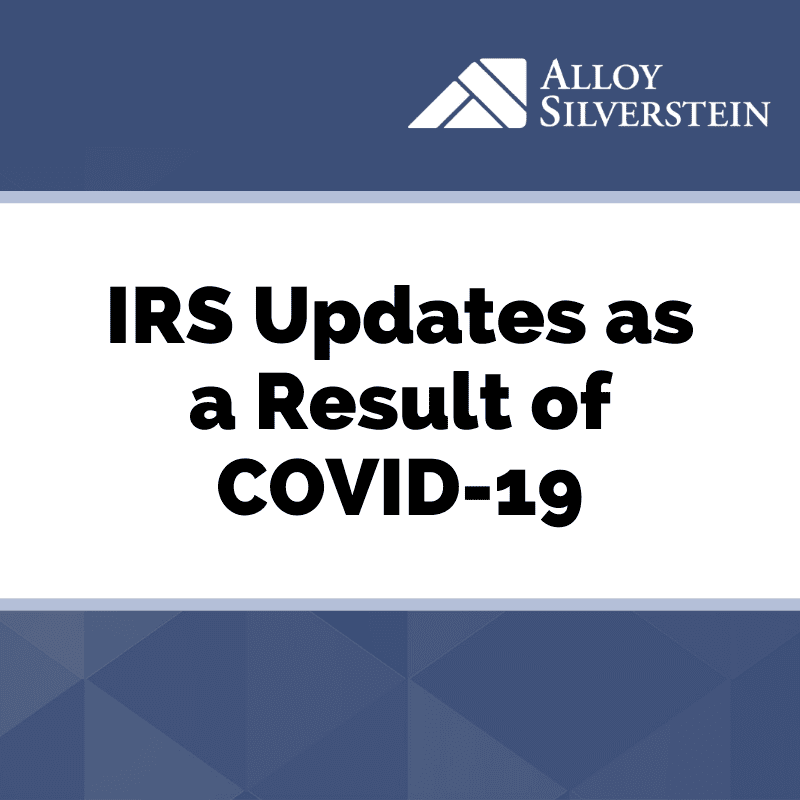

The IRS is updating its policies and procedures in the wake of the COVID-19 pandemic to protect taxpayers, communities, and IRS employees and partners.
They are still continuing to process tax returns, issue refunds and help taxpayers to the greatest extent possible. However, there are a few changes you need to be aware of that could affect normal operations.
Many IRS offices in hard-hit areas of the country are either closed or have reduced operations, but still have employees working remotely. The IRS has temporarily closed all taxpayer assistance centers and face-to-face facilities across the country. Taxpayers do not need to call to cancel their previously scheduled face-to-face appointments. Instead, the IRS will make every effort to resolve the taxpayer’s needs by phone. Likewise, appeal cases are continuing, but conferences may be held over the phone instead of in-person.
While the IRS is still receiving mail, expect a longer than usual wait for a response, even after normal operations resume as they get caught up.
Despite the office closures, know that the IRS is still actively working to process returns and refunds. With the movement of the official tax day to July 15th, you do not have to wait if you are owed a refund. You can gain your refund faster by filing electronically and setting up direct deposit into your bank account. In addition, automated apps such as IRS2Go, Where’s my Refund, and electronic online payments still remain operational and accessible.
The IRS states that live telephone assistance will be temporarily limited, so they encourage taxpayers to turn to IRS.gov and IRS.gov/coronavirus for answers to questions.
Other impacted services include the closure of the Practitioner Priority Service (PPS) line and the toll-free line for the Taxpayer Advocate Service.
To assist with tax filings and returns, the Internal Revenue Service is now temporarily accepting digital signatures, either scanned or photographed. This will make it easier for taxpayers and tax preparers to file while working remotely. This will help to continue filing tax returns as normal as possible and avoid any holdups in the process.
With the passing of the CARES Act, the Recovery Rebate stimulus checks raise many questions. Who? When? How? The good news is that nothing is required on your part besides having filed your taxes for either 2018 or 2019 and having a social security number. The IRS will calculate and automatically send the economic impact payment to those who are eligible. They are asking the public NOT to contact them with questions.
As a reminder, the New Jersey and the federal filing and payment deadline has been moved to July 15th. It can be a confusing time and you may want to double-check that this applies to your circumstances. The IRS has published common questions and their answers to help you understand what the extended filing deadline means for you. Our article summarizes the most common questions out of the 24 that the IRS posted.
If you have tax and IRS questions, reach out to an Alloy Silverstein accountant and advisor. We are here to help.
Empowering business owners and individuals in South Jersey and Philadelphia to feel confident through proactive accounting and advisory solutions.